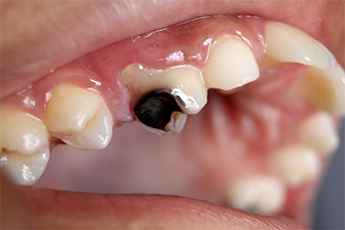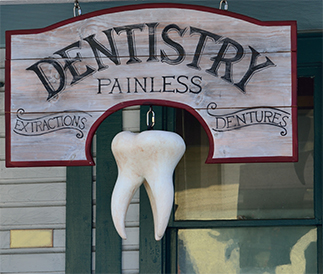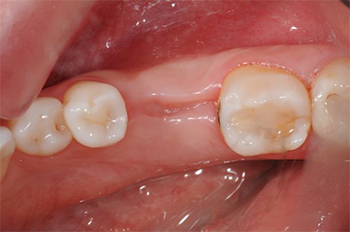Tooth Removal: The decision to remove a tooth may be recommended by the dentist. After exhausting other methods to save the tooth, the dentist may determine that you need to remove the tooth. Technically, we also call this tooth extraction.
Reasons for removing teeth include gross and severe decay, advanced gum disease, and irreparably broken-down teeth. Occasionally, healthy teeth require removal as part of making tooth realignment possible. Healthy teeth located at dangerous angles (impacted teeth) causing unmanageable discomfort are also commonly removed.
Tooth Removal Procedures
At the time of extraction, the doctor will numb your tooth, jawbone and gums in the area surrounding the tooth with a chemical agent called local anesthetic.
During the removal process, you will feel a lot of pressure as the firm tooth is rocked to and fro by the dentist trying to expand its socket. A wide socket allows the tooth to come out with less pain. The patient feels the pressure during this process because the dentist numbs only the pain nerves, the dentist does not numb the pressure nerves. However, if you feel unbearable pain during the procedure, you will need to let the doctor know immediately.
Dividing or Sectioning a tooth
It is necessary to divide some teeth before they will come out. This is a very common procedure done when a tooth is so firmly anchored in its socket, or the root is so curved that the socket cannot expand enough to remove it. The doctor simply cuts the tooth into sections, and then easily removes each section one at a time.


Post-extraction Home Care
Bleeding
When teeth are removed, some bleeding may occur. Placing a piece of moist gauze over the empty tooth socket and biting down firmly for 15 minutes usually stops the bleeding. A blood clot forms in the empty socket. This is an important part of the healing process, and one must be careful not to dislodge the clot.
You can eat you can drink but avoid rinsing, or spitting out for 24 hours after the extraction.
Avoid using a drinking straw, smoking, or hot liquids. They provoke fresh bleeding.
Swelling
If swelling occurs, place ice on your face for 10 minutes, and off for 20 minutes. Repeat this cycle as often as you feel necessary for up to 24 hours.
Pain and Medications
If you experience pain, you may use non-prescription pain-relief medications such as acetaminophen or ibuprofen.
Eating
For most extractions just make sure you do your chewing away from the extraction site. Stay away from hot liquids and alcoholic beverages for 24 hours.
Brushing and Cleaning
After the extraction, avoid brushing the teeth near the extraction site for one day. You can resume gentle cleaning the next day. In addition, avoid commercial mouth rinses, as they tend to irritate the site. Beginning 24 hours after the extraction you can rinse with salt water (1/2 teaspoon in a cup of warm water) after meals, and before bed.
Post extraction pain (Dry Socket)
Dry socket occurs when a blood clot fails to form in the socket that used to house the tooth. Otherwise, the clot was dislodged, and the healing is significantly delayed. Following the post extraction instructions will reduce the chances of developing dry socket.
Dry sockets manifest themselves as a dull throbbing pain, which appears 3 - 4 days after the tooth removal. The pain can be moderate or severe, and radiate from the extraction site to other areas of the face.
Dry sockets may cause a bad taste or bad breath.
You need to visit the clinic immediately for a medicated dressing to soothe the pain, and repair the socket.
Healing
Healing post-extraction should be uneventful if the patient follows instructions. The socket smooths out and fills with bone. This process can take weeks. However, any inconvenience 1 week after tooth removal requires the dentist's review.
Most patients expect medication after dental treatments especially, often this is not necessary.

